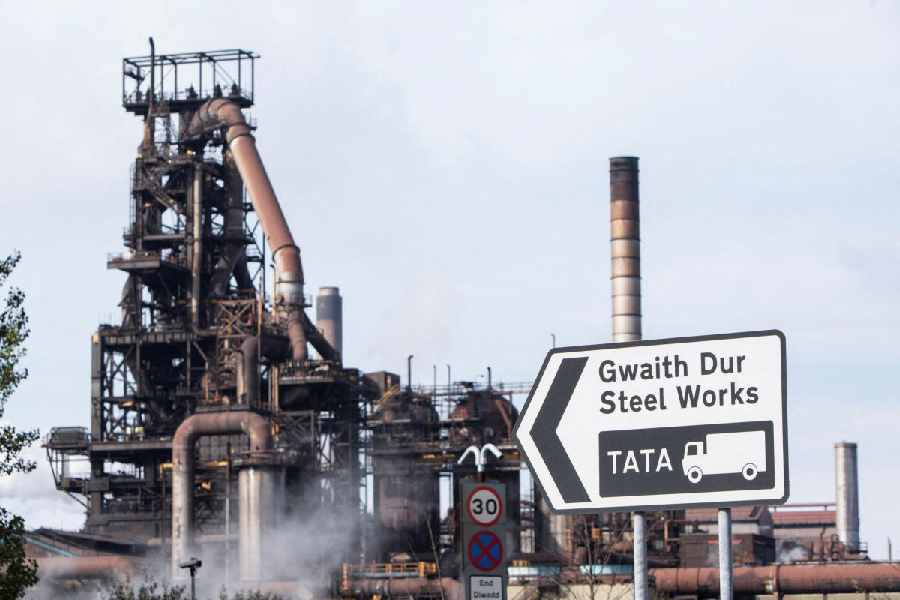The voluntary separation programme launched in the UK by Tata Steel as part of restructuring the British steel business has received good response with as many as 2,114 employees showing interest.
The window to participate in the voluntary redundancy scheme opened on July 10 and closed on August 7. About 5,000 employees across south Wales and central functions of the UK were eligible to take part in the programme.
As part of the restructuring plan, which involves shutting down heavy end assets in Port Talbot, Wales 2,500 jobs will disappear in the next 18 months and another 300 in three years, Tata Steel had informed the bourses in January.
Subsequently, it shut down the coke oven plant in March and one of the blast furnaces in July, while the other BF is scheduled to cease operation by the end of September.
It intends to build an electric arc furnace of 3.2 million tonne per annum capacity with an investment of £1.25 billion, subject to securing £500 million in government funds.
The transition to scrap based EAF will bring down carbon intensity of the steel making operation, making it future facing. Moreover, it is also hoped to stem heavy losses and make the business financially viable.
Unveiled in September 2023, the transition plan ran into protests from trade unions as well as the Labour Party, then in the Opposition, even though the company maintained it would also protect 5,000 jobs.
The company engaged into a seven-month long consultation with the unions, formally and informally, but stuck to its plan to dismantle heavy end assets (BFs).
It also came up with a severance package, which the company described as
best ever in Tata Steel UK. In response to the queries raised by this newspaper, a spokesperson of TSUK said, “Financially, we are offering employees 2.8 weeks salary for every year of service up to a maximum of 25 years. Also, a minimum payment of £15k plus a £5k attendance-related ex-gratia payment.”
While he did not divulge how many people showed interest in the Voluntary Redundancy Aspiration Programme, a spokesperson from the trade union Community pegged the number at 2,114 in response to a question from The Telegraph.
The company official informed that some people could leave as early as September even as ‘the time at which certain roles end is very much dependent on the needs of the organisation’.
The Community spokesperson, however, reminded that the Union expects finalisation of a memorandum
of understanding with the company would follow, cautioning that there should be commitment of no ‘hard-
redundancies’.
Tata Steel had provisioned ₹2,492 crore towards restructuring and closure costs including redundancy and employee termination costs as on FY24.
The cost went up by another ₹ 177.25 crore at the end of the last quarter.
The number of employees showing interest to participate in the package being offered by the company suggests that opposition to Tata Steel’s restructuring programme may not remain as strong as it has over the last 12 months.
In the event all employees participating in the Aspiration programme which closed on August 7 accepts severance package, TSUK would see 84 per cent of the workforce who would have lost jobs due to the transition to EAF leaving
the company on their own
volition.
It would also be good news for the newly elected Labour government who might find it politically more palatable to sign the grant funding agreement with the Tatas, albeit with a commitment for further future investment from Tata Steel in the UK.











